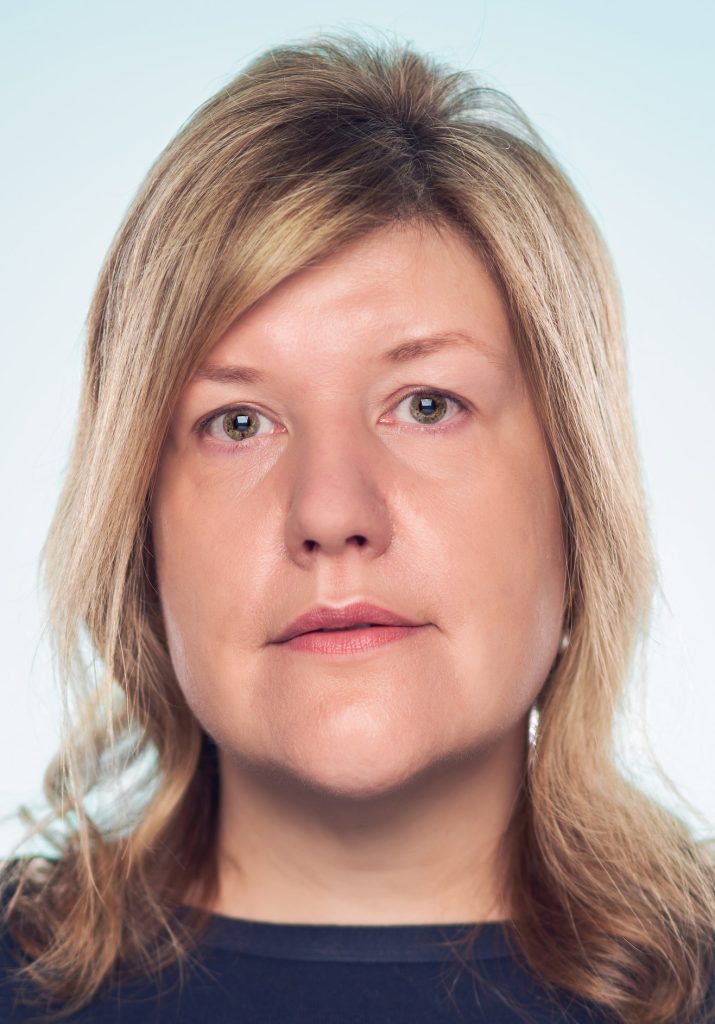Karen Thomas-Bland, Founder of Seven Transformation, a business transformation consultancy based in London, talks to us about her career so far, her management philosophy and how she equips her staff with the necessary skills and knowledge.

- Tell us a bit more about your business and how it started.
I started my business Seven Transformation back in 2011. It’s a small business with a global reach. We make a big impact, working with some of the world’s largest global organisations – such as Accenture, EY, WPP, RELX Group and private equity funds – to support their toughest challenges – typically when they want to transform their business be that through a merger or acquisition, a new strategy or new operating model or they need to turnaround performance fast. For example, we helped an FTSE business restructure to take out cost and position for growth, merged a private equity-backed and listed business in different geographic regions and supported a professional services firm on a new operating model for their advisory business.
- How has the business grown since it started and how did you ensure growth?
The business has grown in revenue and profit terms but most importantly in the impact it makes on clients’ businesses. We ensure continuous growth through:
- Delivering tangible, measurable results.
- Taking on bigger and more complex challenges.
- Building relationships, a strong brand and reputation.
- Not being afraid to walk away if the opportunity isn’t quite right and finally.
- Building a network of trusted and high-quality associates to deliver which can scale with the size of the client opportunities.
- What’s the business’ approach to management?
Our approach to management is high impact, low ego with a client-centric approach driving everything we do. I lead by example and wouldn’t ask my team to do anything I wouldn’t do myself. The teams I build are flexible, open, collaborative and innovative where the best ideas arise from working together to solve complex problems. It’s important to build diversity into the design so you get the value of multiple perspectives. Finally, our approach is to create psychological safety where everyone feels they can bring their whole self to work and are not afraid to speak up.
- What is your company’s vision and goal?
Our goal is to transform and integrate complex listed and private equity-backed global businesses and help them build transformation muscle so they can take more of the projects in house rather than always turning to a management consulting firm. Our only measure of success is our clients’ success.
- What kind of clients and markets do you serve?
Our clients are C-suite leaders of listed businesses, operating partners of private equity funds and managing partners of large consulting firms who are looking for a business transformation partner to lead and run the transformation or integration for them, or advise them along the journey, rather than hiring an expensive consulting firm. The challenges they face can include:
- Wanting to implement a new strategy to respond to or pre-empt a disruption in their industry.
- Have decided to explore and implement a digital business model and subsequent Digital Transformation programme.
- Have started a transformation or turnaround but aren’t seeing results fast enough and know it needs rejuvenation.
- Feel that your business is ready for a breakthrough strategy and needs a partner to help them make that a reality.
- What has your career looked like so far?
I started my career as an organisational psychologist because I was interested in how individuals and organisations go from one state to another and if there is a way to codify the process.
My second pivot was into corporate strategy and business transformation in management consultancies.
The third pivot was then growing and running large service and software businesses organically and through acquisition. Then I set up my own business focusing on business transformation and M&A integration alongside taking non-executive director roles in private equity-backed businesses.
I have been fortunate to work in many countries throughout my career from a stint in the Middle East to three stints in the United States, a time in Sub-Saharan Africa, Asia Pacific and a time in Brazil. All were amazing and uniquely challenging. The lessons I learned from working in different markets is the power of cultural immersion so you can learn new patterns to be successful, understanding and valuing diverse perspectives and the benefit of putting yourself in an unknown situation, taking a risk and finding a way to be successful in a different context.
- How do you equip your team with skills and knowledge?
My teams tend to be a combination of business teams, independent consultants and sometimes teams from management consultancies.
I ensure teams have the skills and knowledge by building into the project learning opportunities, asking specifically about the personal goals and objectives team members have. Also helping members find valuable networks to be part of where they can collaborate with peers or where they are learning a specific skill or methodology together.
You should also encourage them to keep up to date with their craft and beyond by reading widely – my creative friends always say to read two or three things a week you would never ordinarily pick up.
- How do you work with other executives within the C-suite to make sure your voice is heard?
First, it sounds cliched but do what you love doing and what you feel passionate about. If you wake up feeling energised and inspired, it makes a huge difference in amplifying your voice with the people you work alongside.
Second, think about yourself as a brand – what is your unique value proposition, how do you articulate it and how will you differentiate yourself from others around the table? Then protect your brand by always delivering a stellar job.
Build personal relationships with your fellow C-suite members – get to know them personally. It’s no secret that great leaders are well connected. I would also always say yes to a coffee. It can be hard when you are time-pressured, but it feels good to help someone and you never know where conversations and connections can lead.
Finally, the one I’ve always tried to stick by is remaining relevant, which becomes even more challenging and exciting with the pace of technological change.


